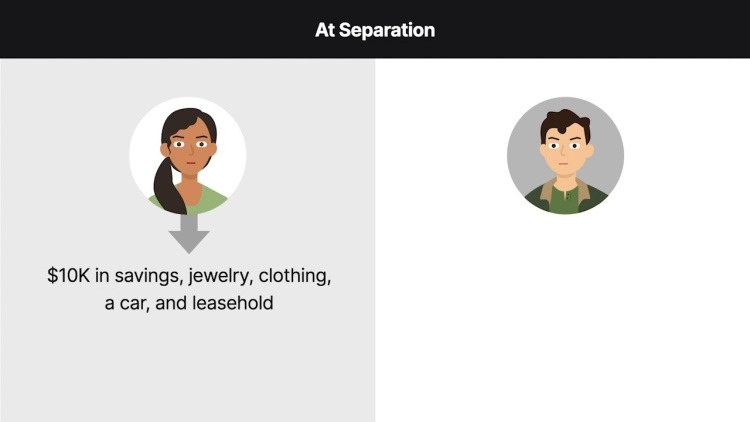Connell v. Francisco
Washington Supreme Court
898 P.2d 831 (1995)
- Written by Craig Conway, LLM
Facts
Shannon Connell (plaintiff) met Richard Francisco (defendant) while Connell was a dancer in a show produced by Francisco in Las Vegas, Nevada. At the time, Francisco owned several companies and had a net worth of approximately $1,300,000. Connell and Francisco began a relationship and cohabitated together in Las Vegas. One of Francisco’s companies purchased The Whidbey Inn (the Inn), a bed and breakfast located in the State of Washington. Connell moved to Washington to manage the Inn and received no compensation for nearly two years, during which Connell prepared breakfast, cleaned rooms, took reservations, and paid bills. Francisco joined Connell in Washington shortly afterward. During their time in Washington, Connell and Francisco were viewed by the community as being married. With Francisco’s consent, Connell used Francisco’s last name. Additionally, Francisco gave Connell an engagement ring. Subsequently, Connell and Francisco separated. At the time of the separation, Connell had $10,000 in cash, some jewelry and clothes, a car, and a leased apartment in New York. Francisco’s net worth had increased to approximately $2,400,000, which was attributable in part to the acquisition of several pieces of real property by Francisco’s companies. Connell filed suit against Francisco, seeking an equitable distribution of the property that was acquired during the relationship. The trial court concluded that the only property subject to equitable distribution was property that would have been community property had Connell and Francisco been married. The court placed the burden of proving that the property should be characterized as community property on Connell, and the court ultimately concluded that Connell only met her burden of proof with respect to the increased value of Francisco's pension plan and not with respect to any of the other property. The trial court further held that the property owned by each party prior to the relationship was not subject to distribution. The court of appeals reversed, holding that property owned by Francisco and Connell prior to the relationship was subject to distribution and that a presumption of joint ownership applied to all property acquired during the relationship. The Supreme Court of Washington granted Francisco's petition for review.
Rule of Law
Issue
Holding and Reasoning (Guy, J.)
Dissent (Utter, J.)
What to do next…
Here's why 907,000 law students have relied on our case briefs:
- Written by law professors and practitioners, not other law students. 47,100 briefs, keyed to 996 casebooks. Top-notch customer support.
- The right amount of information, includes the facts, issues, rule of law, holding and reasoning, and any concurrences and dissents.
- Access in your classes, works on your mobile and tablet. Massive library of related video lessons and high quality multiple-choice questions.
- Easy to use, uniform format for every case brief. Written in plain English, not in legalese. Our briefs summarize and simplify; they don’t just repeat the court’s language.





